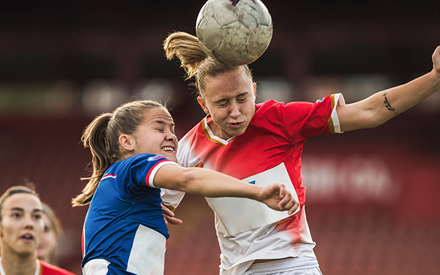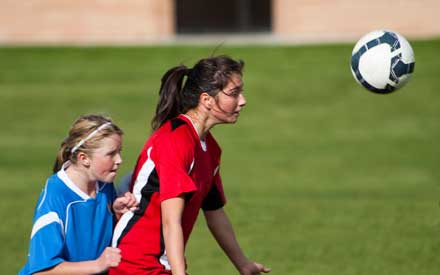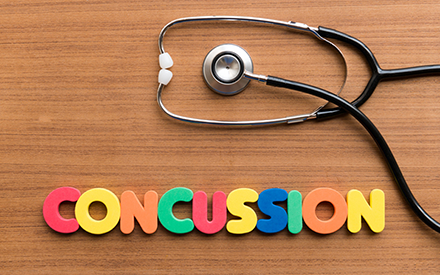Health Center
A concussion is a traumatic brain injury that can cause lasting effects on brain tissue. They also can change the chemical balance of the brain. Concussions can result from incidents such as a blow to the head from a fall, an auto accident, or a sports injury.
A physical therapist can assess symptoms to determine if a concussion is present. They treat the injury by guiding the patient through a safe and personalized recovery program. They also can help to prevent future concussions and injury due to falls by helping to you improve your strength and balance, making home safety modifications, and recommending proper equipment during certain activities.
No two concussions are the same. Your physical therapist will examine you to assess how your concussion affects your:
- Neurological system.
- Musculoskeletal system.
- Cardiovascular system.
Your physical therapist will design a treatment plan to address your specific symptoms, needs, and goals. They will help you safely return to home, school, work, and athletic activities.
Physical therapists are movement experts. They improve quality of life through hands-on care, patient education, and prescribed movement. You can contact a physical therapist directly for an evaluation. To find a physical therapist in your area, visit Find a PT.
Symptoms & Conditions
Featured Content

Podcast
PT Overcomes Nine Concussions, Designs Protocol For Treating Mild Traumatic Brain Injury
Physical therapist Lauren Ziaks talks about the physical therapy treatment protocol she uses to help people get better after concussion.

Health Tips
Recognizing Signs of a Concussion
A concussion is a mild traumatic brain injury. Concussions can be caused by a bump, blow, or jolt to the head or body that causes the brain to move inside the skull.

Podcast
Concussion Awareness and Treatment
Public understanding of concussion risks has improved in recent years, due to increased media attention about head injuries in football.

Did You Know?
Physical Activity After Concussion May Reduce Risk of Persistent Symptoms
In the past, doctors recommended delaying physical activity after a concussion. New research suggests that early return (within one week) to physical activity may actually decrease the likelihood of persistent symptoms in children and teens.
Additional Concussion Content
October 7, 2024 | Guide
A concussion is a traumatic brain injury; some cause lasting effects. A physical therapist can assess symptoms and treat concussion by guiding you through a safe personalized recovery program
Mar 6, 2018 | Did You Know?
While much is reported on the devastating effects of head injuries among professional football players, new information reveals that children aged 3 to 17 years are also at risk.
Jan 20, 2016 | Patient Stories
"I was so thrilled that I was given a second chance. I couldn't help but be happy and keep a smile on my face, despite the incredible pain I was enduring."
Mar 24, 2015 | Podcast
March is Brain Injury Awareness Month.
Aug 26, 2012 | Podcast
A former NFL player and experts in concussion management, rehab, and research discuss concussion treatment, and provide tips for athletes and parents.